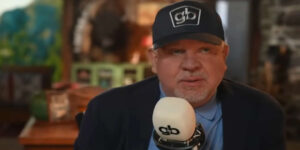15 Blessings You Should Never Take for Granted
At the beginning of this month, two Pakistani Christians—a husband and his pregnant wife—were beaten for three days, stoned by an angry mob and dragged behind a vehicle. Finally they were thrown into a brick kiln and burned alive. The crime: Shahzad Masih, 28, and Shama Bibi, 25, were falsely accused of desecrating a copy of the Quran.
More than 100 people participated in this brutal murder on Nov. 4 in the Pakistani city of Kasur. It’s unlikely that anyone will be convicted for the attack. That’s because freedom of religion—something Americans have enjoyed for more than 200 years—is not guaranteed in Pakistan.
As you celebrate Thanksgiving this year, I hope you are grateful that someone cannot drag you into an oven heated to 1,470 degrees simply because they believe you blasphemed their holy book. I encourage you to make a list of blessings you may take for granted. My list for 2014 might help you think of others:
1. Do you have religious freedom? The majority of the world’s population—75 percent—live in areas with severe religious restrictions. And Christians in more than 60 countries face persecution simply because of their belief in Jesus Christ. About 1.6 billion people in the world live in repressive societies where they have no say in how they are governed.
2. Do you make your own decisions? There are 29.8 million people living as slaves today, according to the Walk Free Foundation. These people live as forced laborers, forced prostitutes, child soldiers and child brides in forced marriages. Walk Free investigated 162 countries and found slaves in every one.
3. Do you have money in a bank? More than 2.5 billion adults around the world are unbanked, according to data based on Gallup polling in 148 countries. Two-thirds of people without accounts said they simply don’t have enough money to use a bank.
4. Do you own shoes? About 300 million children around the world don’t own a pair of shoes. It is estimated that two billion people worldwide are currently plagued with parasitic diseases that could be prevented simply by wearing proper footwear.
5. Do you drink clean water? About 1.1 billion people in the world don’t have access to clean drinking water. Because of that, about 9 million people will die this year because of water-related illnesses. The next time you open a bottle of Dasani or drink from your tap, remember that millions of women around the world spend an average of four hours daily walking to get water.
6. Did your mother survive when you were born? Approximately 800 women die every day from complications during pregnancy and childbirth. This is equivalent to 33 women an hour. Almost all these deaths occurred in developing countries, and most could have been prevented.
7. Did you live past age 5? Some 21,000 children die every day around the world because of poverty and preventable diseases. That is equivalent to one child dying every four seconds. The annual death toll is 7.6 million children a year.
8. Do you eat three meals a day? The World Health Organization estimates that one-third of the world’s population is overfed, one-third is underfed and one-third is starving. Approximately 925 million people in the developing world are chronically undernourished.
9. Do you enjoy reliable electricity? About 1.5 billion people in this world have no access to electrical power. Do you enjoy that oven in your kitchen? The next time you prepare a meal, remember that 2.5 billion people in the world still use wood or charcoal to cook their food. Do you enjoy your washing machine? About 5 billion people in the world still wash their clothes by hand.
10. Do you have a roof over your head? The U.N. Commission on Human Rights says there are 100 million homeless people in the world. One in three children in the world live without adequate shelter. And today there are about 42 million people who are living as refugees. Most were displaced by war and live in crude camps.
11. Do you own a car? The United States still has the highest number of motor vehicles in the world. Globally, only 1 out of every 8 people has access to a car. Many of the others either walk, take crowded buses or public vans or ride on bicycles, rickshaws or animals. Did you fly somewhere in the past year? You are blessed. Only 5 to 7 percent of people in the world have ever flown in an airplane.
12. Do you have a flushable toilet? The United Nations Development Program reports that 2.6 billion people do not have access to any toilet facilities. India has the largest percentage of people who lack adequate sanitation. About 638 million Indians must go outdoors.
13. Can you read? Nearly a billion people entered the 21st century unable to read a book or sign their names. There are 72 million children who should be in school but are not enrolled. And if you have a college degree, you are in a privileged minority; only 6.7 percent of people in the world have a college diploma.
14. Can you see? Over 285 million people in the world are visually impaired. About 39 million of these are blind and 246 million have moderate to severe visual impairment. India is home to the world’s largest number of blind people, due to the country’s acute shortage of optometrists.
15. Do you have health care? Here in the United States, we are debating the pros and cons of Obamacare—and griping about the reliability of the government’s health care website. But did you know that 1 billion people in the world have no access to any form of health systems—and their children cannot receive childhood immunizations.
King David wrote: “Bless the Lord, O my soul, and forget none of His benefits” (Ps. 103:2, NASB). Thanksgiving is not an optional virtue. Without it, our pride swells and our selfishness consumes us. Thanksgiving is an important exercise because it adjusts our attitude. It calibrates our hearts so that we stop complaining and instead remember how we are blessed and Who deserves the credit for our blessings. Happy Thanksgiving!
J. Lee Grady is the former editor of Charisma. You can follow him on Twitter at leegrady. His newest book is The Truth Sets Women Free from Charisma House. You can learn more about his ministry, The Mordecai Project, at themordecaiproject.org.






































